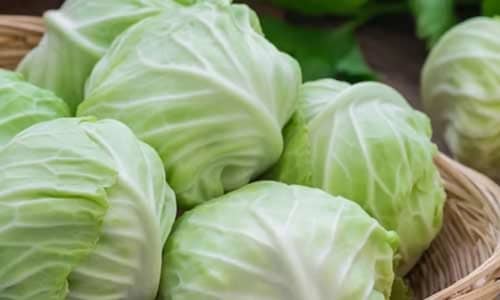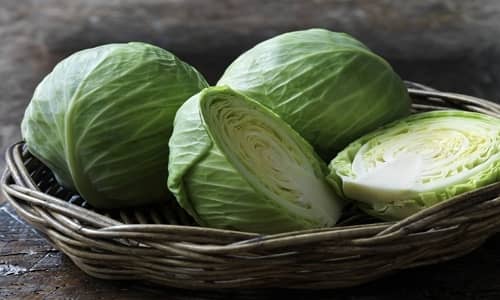Cabbage Benefits, Boil, Calorie
Cabbage Nutrition

| Cabbage (100g) Nutrition | |||
| Carbohydrate | Protein | Fat | Calories |
| 6g | 1.4g | 0g | 18kcal |
| Main Nutrition | Vitamin A, dietary fiber, iron | ||
| Main Benefits | Control blood pressure and improve cholesterol levels | ||
| Side Effects | Excessive intake causes abdominal pain and diarrhea | ||
Despite its impressive nutrient content, cabbage is often overlooked. Although it looks like lettuce, it is actually part of a family of vegetables that includes broccoli, cauliflower, and kale. They come in a variety of shapes and colors, including red, purple, white and green, and the leaves are wrinkled and smooth. Cabbage has been cultivated around the world for thousands of years and can be found in a variety of cuisines. Cabbage also contains small amounts of other micronutrients, including vitamins and minerals, vitamin A, iron, and riboflavin.
2. Cabbage Benefits

1. Gastrointestinal health
If you want to improve your digestive health, we recommend cabbage, which is rich in fiber. Cabbage is full of gut-friendly insoluble fiber, a type of carbohydrate that cannot be broken down in the intestines. Insoluble fiber helps keep your digestive system healthy by adding bulk to your stool and promoting regular bowel movements. Moreover, they are rich in soluble fiber, which has been shown to increase the number of beneficial bacteria in the intestines.
2. Blood pressure control
High blood pressure affects more than a billion people worldwide and is a major risk factor for heart disease and stroke. Increasing your potassium intake is just as important as lowering your blood pressure. Cabbage contains potassium, an important mineral and electrolyte that your body needs to function properly. One of its main jobs is to regulate blood pressure by counteracting the effects of sodium in the body. Potassium also helps excrete excess sodium through urine and relaxes blood vessel walls, lowering blood pressure.
3. Cholesterol improvement
Cholesterol is a waxy, fat-like substance found in every cell of the body. Some people believe that all cholesterol is bad, but it is also essential for the proper functioning of the body. Key processes depend on cholesterol, such as proper digestion and synthesis of hormones and vitamin D. However, people with high cholesterol tend to have an increased risk of heart disease, especially when they have high levels of bad LDL cholesterol. Cabbage contains soluble fiber and plant sterols, substances that have been shown to lower unhealthy LDL cholesterol levels, thereby reducing the risk of heart disease.
4. Anti -inflammatory effect
Inflammation causes unnecessary pain and discomfort and can lead to other illnesses and diseases. Glutamine, an amino acid found in cabbage, is a powerful anti-inflammatory that helps reduce joint pain, arthritis, and alleviate allergies. Cabbage is considered one of the top 10 food sources of glutamine. Cabbage is also very effective in treating and preventing ulcers due to its anti-inflammatory properties.
3. Cabbage How to boil
4. Cabbage Side Effect
- Excessive consumption of cabbage may cause symptoms such as indigestion, abdominal pain, and diarrhea.
- The goiterogen content in cabbage can reduce thyroid function, so people with poor thyroid function should be careful when consuming it.
- It is recommended that people taking warfarin avoid consuming cabbage as it may interfere with drug absorption.